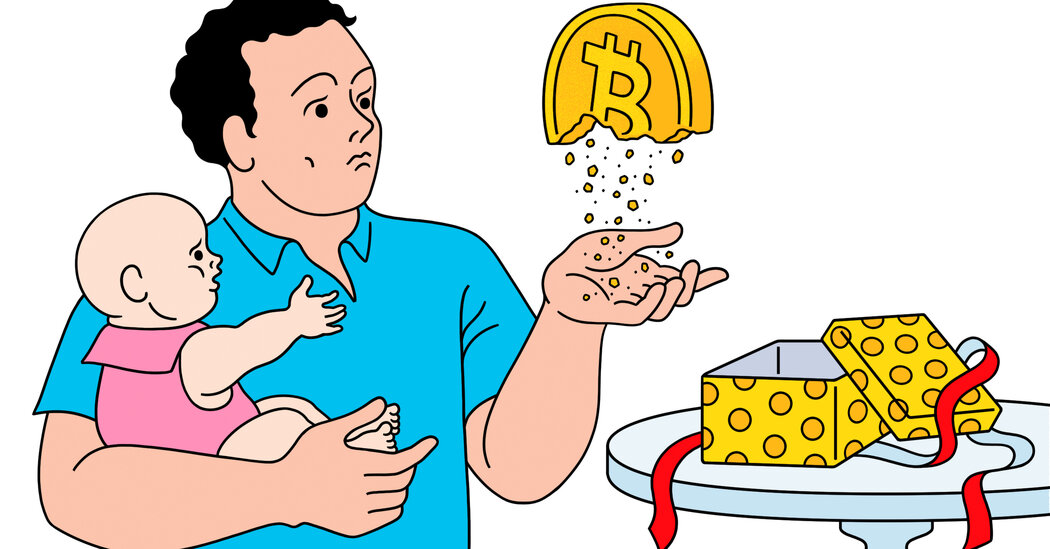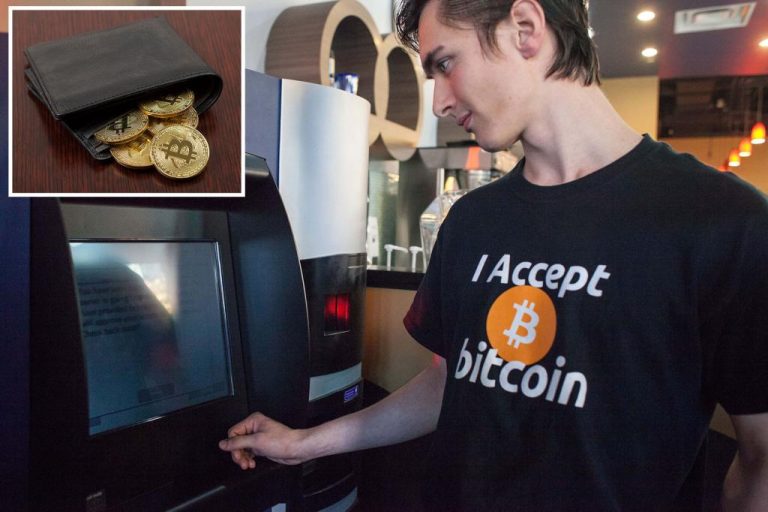My wife and I just had a baby girl. A college friend of ours sent us $175 in Bitcoin as a baby gift. He’s a crypto bro and is super-into it, while I, on the other hand, am extremely skeptical. My friend said that I can’t sell it until her bat mitzvah (when “it will be at least $1,000,” in his words). I believe that there is a decent likelihood that it is worth $0 in 12 years. Since I am the steward of my baby’s money (until she turns 18), do I have a fiduciary responsibility to sell the Bitcoin now since I think it will be worth nothing, or do I have a responsibility to honor my friend’s wishes and keep the money in Bitcoin until she turns 12? — Michael, New York
From the Ethicist:
Your friend didn’t leave you a nest egg you’re honorbound to protect. He left you a souvenir, a digital gewgaw. You could cash it out right now and buy, say, two sheet ice-cream cakes from Carvel. But his wishes were clear. He asked you to wait until her bat mitzvah. That’s the whole gift: a speculative dare wrapped in friendship. Ignoring his wishes could sour that friendship: Price this in. Lying about it to prevent him from finding out could cost you some self-respect: Price that in too. The math seems straightforward. Honor his wishes, keep the peace and let it ride. If it sinks, you can gloat about how right you were all along. That’s got to be worth something.
Readers Respond
The previous question was about how much say a husband should have in whether to keep an unplanned pregnancy. She wrote: “I’m 46, unexpectedly pregnant despite having entered perimenopause, with three children already (the youngest is 4). My husband calls this a ‘disaster,’ and believes abortion is the clear choice because we didn’t want another child or plan on this pregnancy. I feel differently. Though I am pro-choice, the idea of terminating a pregnancy makes me deeply uncomfortable, and I’m afraid I would regret it.
“My husband’s arguments are that a baby will upend our professional lives, that he doesn’t want to return to the exhaustion and social isolation of early parenthood and that he’s unwilling to take on a full-time caregiver role again. … We have a stable family, as well as access to the financial benefits afforded to families living in a social-welfare state. Choosing to end this pregnancy feels like a decision based on short-term disruption, and that seems too small a reason.









